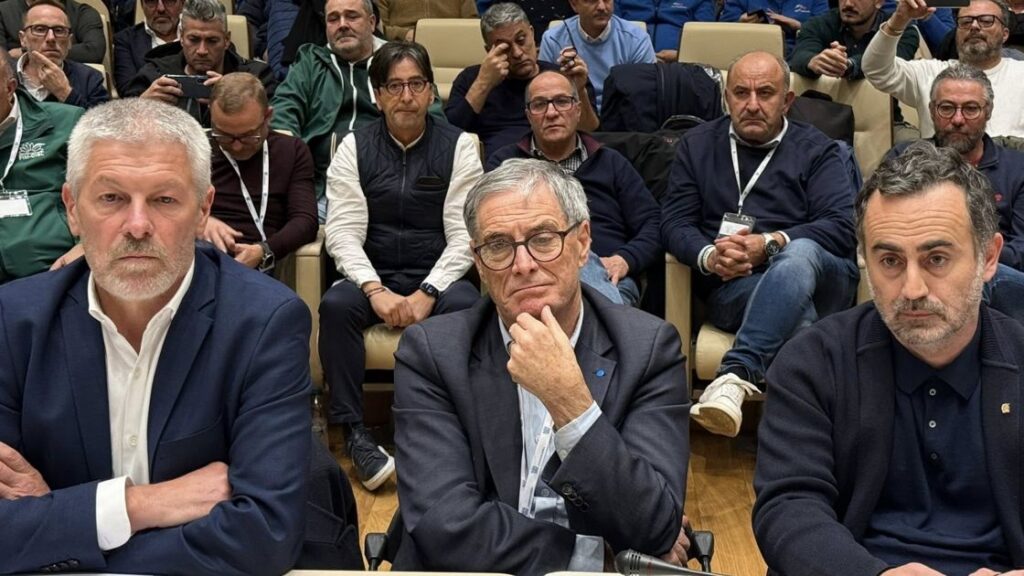26 November, 2025Last week Italy’s metal workers secured a major victory as the unions Fim, Fiom and Uilm, all affiliated to IndustriALL Global Union, signed the renewed National Collective Labour Agreement (NCLA) with Federmeccanica and Assistal after four days of continuous and intense negotiations. The agreement covers more than 1.5 million workers across the country and guarantees a €205(US$ 237.17) increase on minimum contractual salaries over four years, which the unions say is essential to protecting wages amid rising living costs and economic uncertainty.
In June 2025, FIOM, FIM and UILM staged an eight-hour strike accompanied by regional demonstrations across Italy, calling out what they described as the employers’ irresponsible refusal to negotiate. Workers across the sector, including those in small and medium-sized enterprises, joined the strike action and additional measures, such as overtime and flexibility blockades, were enforced. Demonstrations sent a clear and unified message: workers would not accept stagnation, wage erosion or further delays. The strike movement strengthened union resolve and demonstrated to employers that metal workers were mobilized, united and prepared to continue the fight to defend purchasing power and secure fair working conditions.
Union negotiators have described this as a crucial victory that ensures long-term wage defence at a moment when many families are facing mounting financial strain. The revised wage structure maintains a system designed to safeguard purchasing power through inflation. The agreement also includes an additional salary quota and a safeguard clause should inflation surge beyond forecasts during the contract period.
General secretaries Ferdinando Uliano, Michele De Palma and Rocco Palombella, from Fim, Fiom and Uilm, said the contract represents not only a negotiation victory, but also the defence of Italy’s national collective bargaining system itself. They emphasized the unity and resolve of the unions throughout the process:
“It was a very hard negotiation, but we closed the gap and signed a strong contract. We protected the purchasing power of metal workers and strengthened rights and protections. The wage increase, the start of a working-time reduction trial and the stabilization of precarious work were our pillars and we achieved them. Today, we can say we saved the national contract, which has never stopped being challenged. This agreement ensures dignity for those who build the industrial heart of Italy. Metal workers are once again writing the history of this country at a time when it needs stability, courage and lasting solutions.”
The contract delivers significant gains in the fight against job insecurity and precarious work, issues that have been central to the unions’ platform. Employers will now be required to stabilize a share of fixed-term workers after 12 months if they wish to extend temporary contracts under specific conditions. Workers employed through staffing agencies will gain the right to permanent employment at the host company after 48 months, an important shift toward fairer and more secure employment for thousands of metal workers.
The agreement also introduces forward-looking changes, including a structured trial to reduce working hours under the guidance of a dedicated commission. Additional improvements include stronger health and safety protections, expanded rights to workplace training, enhanced safeguards for seriously ill and disabled workers and new provisions specifically aimed at preventing violence against women.
IndustriALL general secretary, Atle Høie, praised the agreement and the determination of the Italian unions:
“This is an important victory not only for metal workers in Italy, but for workers everywhere who are fighting against insecurity, declining wages and the erosion of fundamental rights. By securing real wage protection, pathways to stable employment and groundbreaking progress on working-time reduction, Fim, Fiom and Uilm have shown what strong, united unions can achieve. This agreement sends a clear message: collective bargaining remains one of the most powerful tools workers have to build fairer, safer and more dignified workplaces.”
